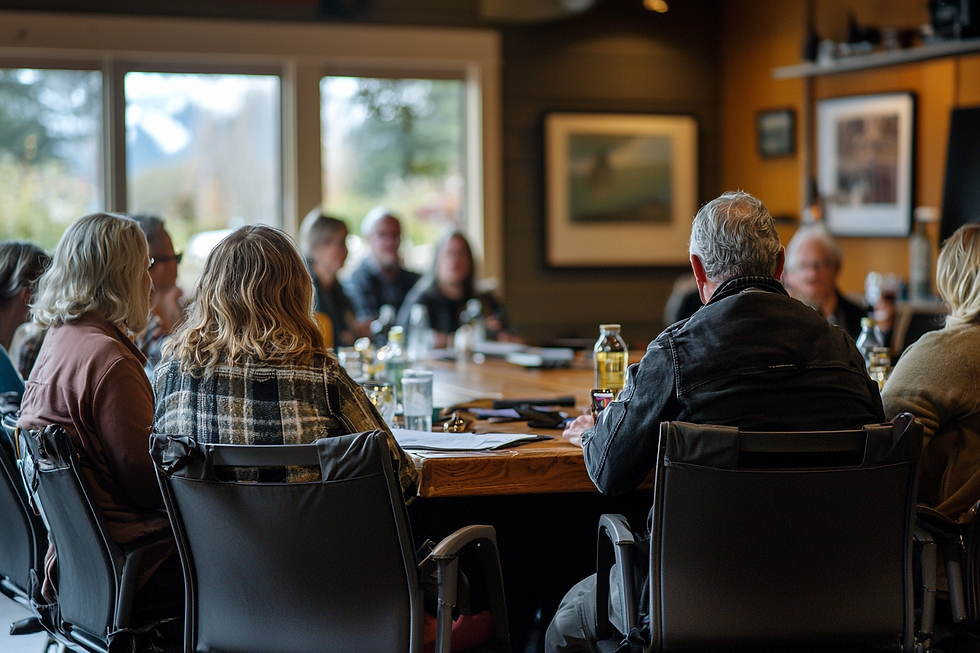As a town administrator in a local community, you understand the challenges of revitalizing your downtown area with limited resources. One effective strategy to build public support and demonstrate the potential of underutilized spaces is through strategic community events. These events not only bring people together but also serve as powerful tools for visualizing urban renewal. Here's how you can leverage experiential events to catalyze change in your community.
Why Experiential Events Are Powerful Tools for Visualizing Urban Renewal

Experiential events offer a tangible way for residents to experience and envision the possibilities of urban renewal. By transforming underutilized spaces into vibrant hubs of activity, these events can inspire community members to see their downtown area in a new light. For instance, a small town in Oregon might host a pop-up market in a vacant lot, showcasing local artisans and food vendors. This not only highlights the potential of the space but also fosters a sense of community ownership and excitement for future development.
Types of Events That Showcase Different Aspects of Downtown Potential

Cultural Festivals: Celebrate local heritage with music, dance, and food festivals that bring people together and highlight the cultural richness of your town.
Community Townhall's / Hosted Dinners: Host town hall meetings where officials and residents can share feedback and insights about their community and discuss where they want it to go. These forums provide a platform for open dialogue, fostering a sense of community ownership and guiding future development.
Outdoor Activities: Organize community clean-up days, bike rides, or outdoor movie nights that showcase the potential for recreational activities in your downtown area.
Food and Art Markets: Set up markets featuring local produce, crafts, and art to attract visitors and showcase the economic potential of your downtown.
These events can be tailored to fit the unique character and needs of your community, ensuring that they resonate with residents and visitors alike.
How to Design Events That Highlight Specific Renewal Opportunities
When designing events, focus on specific renewal opportunities you want to highlight. For example, if you're looking to revitalize a neglected park, host a community picnic or outdoor concert there. This not only brings attention to the space but also demonstrates its potential as a vibrant community hub.
Identify Key Spaces: Choose underutilized areas that have the most potential for revitalization.
Engage Community Input: Involve residents in the planning process to ensure events reflect community needs and aspirations.
Set Clear Goals: Define what you want to achieve with each event, whether it's raising awareness, building support, or testing new ideas.
By involving the community in the design process, you ensure that events are meaningful and relevant, fostering a sense of ownership and support for future development.
Engaging Local Businesses and Property Owners in Event Planning

Engaging local businesses and property owners is crucial for the success of community events. They can provide valuable insights into the needs of the local economy and help identify opportunities for collaboration.
Form Partnerships: Collaborate with local businesses to sponsor events or provide resources.
Encourage Participation: Invite property owners to participate in planning and execution, ensuring their interests are represented.
Offer Incentives: Provide incentives such as tax breaks or promotional opportunities to encourage participation.
By working together, you can create events that not only showcase downtown potential but also support local economic development.
Converting Event Momentum into Support for Longer-Term Revitalization
Once you've generated momentum with community events, it's essential to convert this energy into support for longer-term revitalization efforts. Here are some strategies to achieve this:
Follow-Up Engagement: Use social media and community meetings to keep the conversation going after events.
Feedback and Evaluation: Collect feedback from attendees to refine future events and development plans.
Collaborative Planning: Involve community members in the planning process for future projects, ensuring that their voices are heard and valued.
By maintaining a dialogue with the community and incorporating their feedback, you can build a strong foundation for sustainable urban renewal.
In conclusion, strategic community events are a powerful tool for demonstrating the potential of underutilized downtown spaces and building public support for revitalization efforts. By leveraging these events, small towns in Oregon can create a vision for their future that resonates with residents and inspires meaningful change.
If you're looking to develop a comprehensive event strategy that aligns with your town's unique needs and goals, consider reaching out to HSC for professional assistance. Our team specializes in urban planning, economic development, and community revitalization, offering tailored solutions to help your town thrive. Together, we can create a vibrant and sustainable future for your community.

Comments